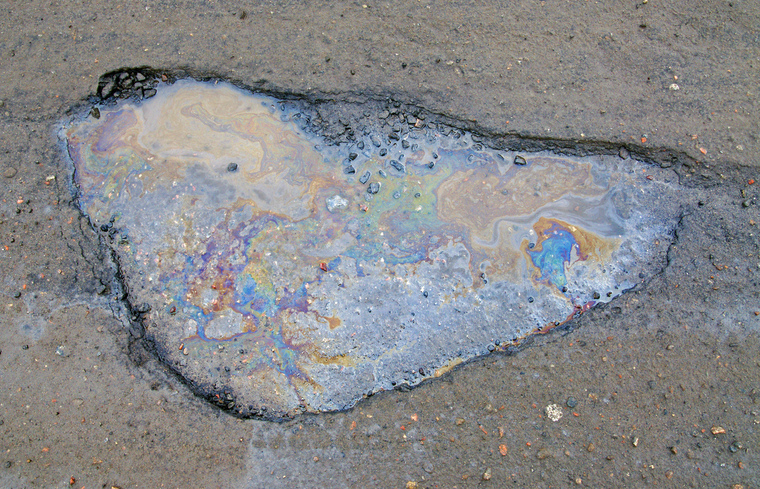An unusual collision this past weekend in Nevada resulted in an unpleasant and slippery mess. The crash took place on State Route 306, 45 miles southwest of Elko. According to the Nevada Highway Patrol (NHP), a Union Pacific freight train struck the end of a tanker truck that had failed to clear the tracks. This resulted in a spill of approximately 4,000 gallons of diesel fuel onto the tracks and the nearby highway. The roads were closed for clean-up and investigation as well as safety precautions. [1]
Thankfully, though the mess was substantial, no one was seriously injured in this accident. An environmental services company was brought out to clean up the diesel fuel, which flowed from the tracks onto the highway. The highway remained closed for the remainder of the day (this was on Saturday, March 2) to allow for cleanup and investigation by Union Pacific and the NHP. [2] At this time it does not appear that federal officials will become involved, either from the perspective of environmental cleanup or to provide additional investigation of the crash itself.
Diesel fuel presents an interesting paradox in highway accidents: it is both one of the most commonly transported materials on the road and one of the more hazardous substances to travel on them. In addition, it is at high risk for accidents and spills on the roadways. Many trucks carry fuel between production facilities and gas stations, and all these trucks are at risk of roadway bumps, vehicle collisions, and simple mechanical failures. (Many of these vehicles also use diesel fuel for propulsion, though the quantities in individual gas tanks are much, much smaller than those involved in industrial-scale transportation.) As we see from Saturday’s incident in rural Nevada, all it takes is one ill-timed collision with a train or truck carrying fuel and suddenly thousands of motorists and nearby pedestrians can become at risk of injury and illness related to the chemical spill. [3]
Diesel spills are extremely common on U.S. roads. There are no official numbers on how many diesel spills happen each year on the nation’s highways, but an emergency response company called HMHTTC Response, Inc. – which is based out of New Jersey – reports that it manages approximately 2,500 hazardous materials incidents each year. HMHTTC says that about 60 percent of these incidents related to diesel spills. Most of these spills originate with trucks on the roads; it appears that trucks are highly susceptible to crashes and mechanical failure. This company does its best to identify the cause of the spills that it is assigned to clean up and to make recommendations to trucking companies to avoid further incidents, but spills remain common. [4]
When a petroleum product, such as diesel fuel, is spilled on a road, it presents several distinct risks. At a basic level, diesel fuel is slippery, and it can create traffic problems on the roads surrounding the spill. It can also present a risk of injury to pedestrians at the scene, or those attempting to clean the spill. If diesel fuel reaches groundwater supplies it can contaminate drinking water, creating a health hazard for nearby residents reliant on well water. By design, diesel fuel is highly flammable. This is very useful for car engines, which burn the fuel to create heat and energy, but dangerous for people around a fuel spill. If spills are not contained quickly, they can pose a serious fire risk. [5]
While diesel fuel is not as flammable as some other fuels, such as gasoline, ethanol, or propane, it can still catch fire. Once ignited, it is very difficult to extinguish. Diesel fuel can also cause injury through eye or skin exposure. It is easily absorbed through the skin, and it can cause eye and skin irritation, redness, and burns. Even if you don’t touch the diesel fuel itself, inhaling the fumes from the fuel can cause dizziness, nausea, respiratory irritation, and high blood pressure. In other words, even if you are not burned by diesel fuel, simple proximity is enough to result in minor injuries. [6] For especially vulnerable bystanders, the harm can be even worse than these minor symptoms.
In Europe, there is growing concern that diesel fuel spillage on roadways is a contributing factor in many motorcycle and moped accidents. According to the Swedish Motorcyclist Association, several hundred motorcyclists in Sweden alone are injured each year in motorcycle accidents on slippery roads caused in part by a combination of loose gravel and diesel fuel spillage. There is a growing consensus that loose gravel, in combination with diesel fuel spills, produces slippery and unsafe conditions. For example, in one study road friction was tested on asphalt with loose gravel and then with a combination of gravel and diesel fuel. Bare, dry asphalt had friction numbers around 0.75. Similarly, Nevada motorcycle accident lawyers have noted that local conditions involving fuel spills and road debris contribute to a significant number of motorcycle crashes in the state. Loose gravel reduced this coefficient to only 0.35, while diesel fuel reduced it even further, to 0.30. This low friction scenario is roughly equivalent to driving a motorcycle on packed snow. These hazards catch many motorcyclists off guard, especially on sunny days when they least expect slippery road conditions.[7]
If you have been injured, whether through a crash, burn, or chemical exposure, and you feel that this was related to a diesel spill on the highway, be sure to contact local law enforcement immediately. Highway patrol can assess the situation quickly and make sure that the proper clean-up crews are brought in to deal with the hazardous substance. Police can also make an official record of the accident that can be useful if litigation becomes necessary to vindicate your rights. Seek appropriate medical help and tell your doctor about the circumstances surrounding your injury. Finally, contact a personal injury attorney to make sure you understand your rights as an injured party.
[1] https://lasvegassun.com/news/2019/mar/02/train-tanker-collision-spills-diesel-fuel-on-nevad
[2] https://www.newsstandhub.com/en-us/las-vegas-sun-com/train-tanker-collision-spills-diesel-fuel-on-ne…
[3] https://www.aegenviro.com/blog/dangers-diesel-fuel-spills/
[4] https://www.truckinginfo.com/152892/diesel-spill-threats
[5] http://www.cfdsystems.com/bulletin-files/CFDS%20Safety%20Bulletin%20Diesel%20Fuel.pdf
Image Credit: kallerna in Wikipedia Commons


